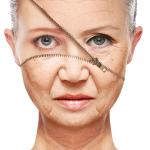For lack of a more sophisticated term, the reason we grow old and die is because our biological tissues “wear out.”
telomeres
By Patricia Opresko, University of Pittsburgh and
A new study in Translational Psychiatry sought to elucidate whether reduced telomere length (TL) is associated with childhood trauma in those with schizophrenia (SZ) and bipo
Although known mainly for their adherence to an older, simpler way of life, some Amish folks also have a genetic advantage with respect to longevity and the likelihood they'll develop diabetes.
There are many questionable aging-related products on the market. One of the more recent is TeloYears, a test that supposedly determines your "true age" by measuring the length of a structure on your chromosomes called telomeres.
Views toward suicide have changed in recent decades. Once largely perceived as a selfish act and a "permanent solution to a temporary problem," society has become more compassionate toward those who suffer in silence.
If feeling older than you look appeals to you, take a seat while you read this: A recent study found that women who sit longer than 10 hours a day,









